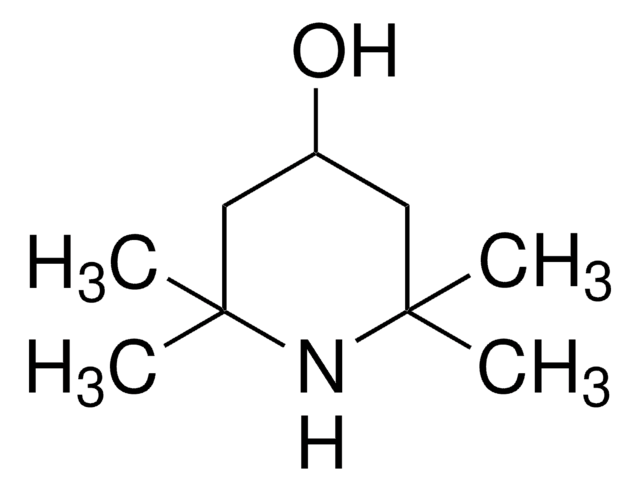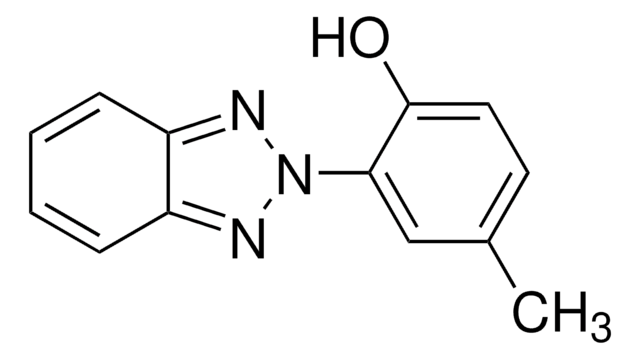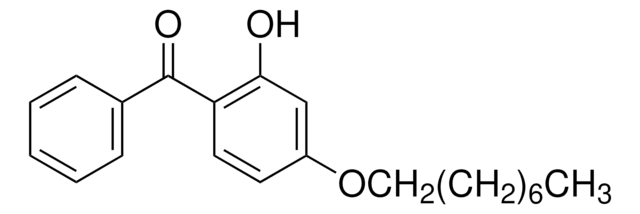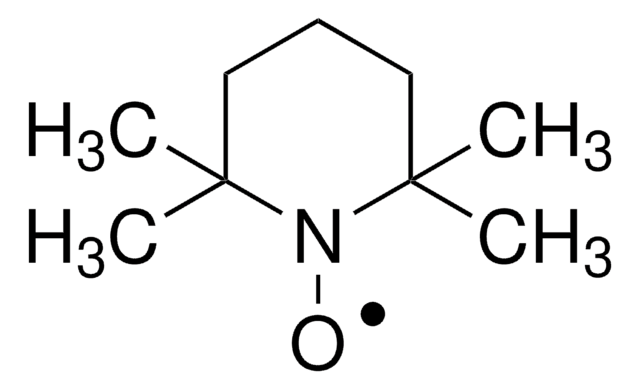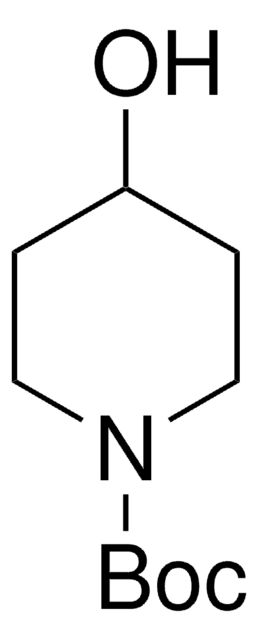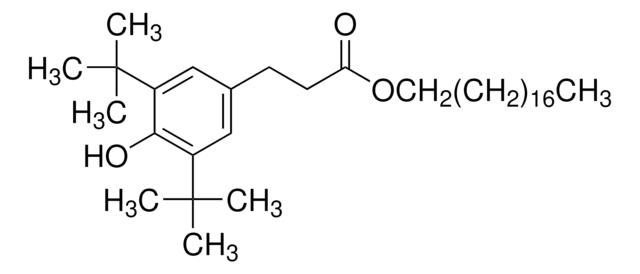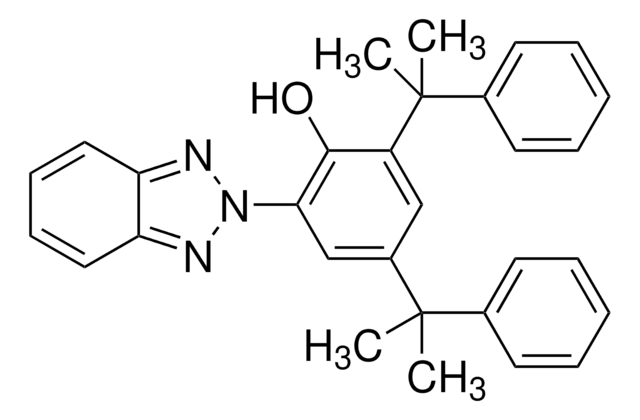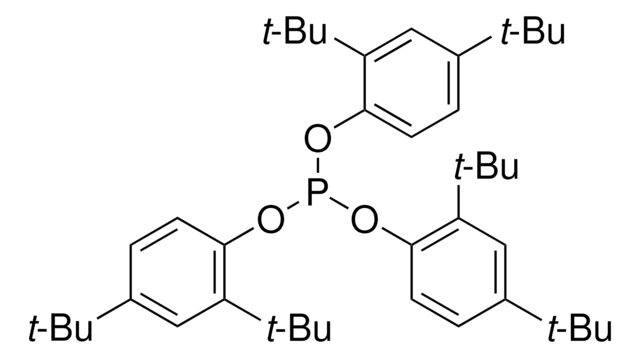About This Item
Recommended Products
loss
0.7 wt. % volatility, 150-175°C
mp
82-85 °C (lit.)
transition temp
Tg >350 °C (dec)
solubility
acetone: 19 % (w/w) at 20 °C
ethyl acetate: 24 % (w/w) at 20 °C
methanol: 38 % (w/w) at 20 °C
chloroform: 45 % (w/w) at 20 °C
methylene chloride: 56 % (w/w) at 20 °C
H2O: insoluble <6 ppm at 20 °C
SMILES string
CC1(C)CC(CC(C)(C)N1)OC(=O)CCCCCCCCC(=O)OC2CC(C)(C)NC(C)(C)C2
InChI
1S/C28H52N2O4/c1-25(2)17-21(18-26(3,4)29-25)33-23(31)15-13-11-9-10-12-14-16-24(32)34-22-19-27(5,6)30-28(7,8)20-22/h21-22,29-30H,9-20H2,1-8H3
InChI key
XITRBUPOXXBIJN-UHFFFAOYSA-N
Looking for similar products? Visit Product Comparison Guide
General description
Application
signalword
Danger
hcodes
Hazard Classifications
Aquatic Acute 1 - Aquatic Chronic 2 - Eye Dam. 1
Storage Class
11 - Combustible Solids
wgk_germany
WGK 3
flash_point_f
>302.0 °F
flash_point_c
> 150 °C
ppe
Eyeshields, Faceshields, Gloves, type P2 (EN 143) respirator cartridges
Choose from one of the most recent versions:
Already Own This Product?
Find documentation for the products that you have recently purchased in the Document Library.
Customers Also Viewed
Our team of scientists has experience in all areas of research including Life Science, Material Science, Chemical Synthesis, Chromatography, Analytical and many others.
Contact Technical Service![Poly[[6-[(1,1,3,3-tetramethylbutyl)amino]-s-triazine-2,4-diyl]-[(2,2,6,6-tetramethyl-4-piperidyl)imino]-hexamethylene-[(2,2,6,6-tetramethyl-4-piperidyl)imino] average Mn ~2,000](/deepweb/assets/sigmaaldrich/product/structures/679/088/c718a900-edcf-4dfa-ac1e-c410f3f12ab5/640/c718a900-edcf-4dfa-ac1e-c410f3f12ab5.png)
